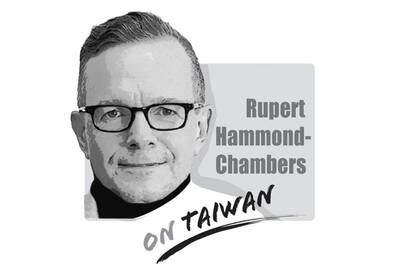The National Science and Technology Council has carried out its phase three expansion project in the Longtan (龍潭) section of Hsinchu Science Park (新竹科學園區). The main aim was for Taiwan Semiconductor Manufacturing Co (TSMC) to build its new advanced fab there. More than 100 hectares would have been expropriated for TSMC and a lot of people who have lived in Longtan for generations were to be affected.
For months, residents complained about the project and protested against it.
Eventually, TSMC said that after thorough consideration, it would not build a fab in Longtan.
The decision came as quite a surprise.
TSMC, also known as Taiwan’s “silicon shield,” has led the world’s semiconductor industry for years. It is believed that Taiwan’s economy is directly linked to how well TSMC does: If it performs well, Taiwan should do well and vice versa.
As soon as TSMC announced its withdrawal from the Longtan plan, officials in Kaohsiung, Taichung, Chiayi County and Tainan immediately said that the company was more than welcome to set up a fab in their localities.
The problem with TSMC fabs is that they require a lot of electricity and water.
In the past few years, Tainan has had to deal with water shortages. Its reservoirs are full now because typhoons have brought a lot of rain to the region, but if TSMC built a fab in Tainan, it would likely have to deal with a water shortage sooner rather than later.
Chiayi County and Kaohsiung have the same issue, as they, too, do not have abundant water resources.
On the other hand, Yilan County is more suitable. The county records more than 200 rainy days per year on average, so a fab there would not have to worry about reservoir levels.
Electricity supply issues could be solved by setting up more substations.
As for earthquakes in eastern Taiwan, that issue could be accounted for with today’s technology.
Hsinchu Science Park’s Yilan section next to the Yilan Sports Park has been operating for more than 10 years, but less than 50 percent of the land is leased.
Moreover, areas including Hungchailin (紅柴林) in Sansing Township (三星), Dingpu (頂埔) in Toucheng Township (頭城) and Hsinnan (新南) in Jhuangwei Township (壯圍) could provide TSMC with hundreds of hectares of land.
Is there a more suitable place for TSMC than Yilan County?
Once the high-speed rail extension to Yilan is completed, travel to the county would become even more convenient.
The Yilan County Government should work hard to attract more enterprises and seek further investment so that TSMC would not have problems if it decides to build a fab in Yilan.
With more talent coming in, more job opportunities would be created. Yilan should seize this chance to develop and stimulate its economy.
TSMC is more than welcome to set up a fab in Yilan.
Dino Wei is an information engineer living in Yilan County.
Translated by Emma Liu
Having lived through former British prime minister Boris Johnson’s tumultuous and scandal-ridden administration, the last place I had expected to come face-to-face with “Mr Brexit” was in a hotel ballroom in Taipei. Should I have been so surprised? Over the past few years, Taiwan has unfortunately become the destination of choice for washed-up Western politicians to turn up long after their political careers have ended, making grandiose speeches in exchange for extraordinarily large paychecks far exceeding the annual salary of all but the wealthiest of Taiwan’s business tycoons. Taiwan’s pursuit of bygone politicians with little to no influence in their home
In a recent essay, “How Taiwan Lost Trump,” a former adviser to US President Donald Trump, Christian Whiton, accuses Taiwan of diplomatic incompetence — claiming Taipei failed to reach out to Trump, botched trade negotiations and mishandled its defense posture. Whiton’s narrative overlooks a fundamental truth: Taiwan was never in a position to “win” Trump’s favor in the first place. The playing field was asymmetrical from the outset, dominated by a transactional US president on one side and the looming threat of Chinese coercion on the other. From the outset of his second term, which began in January, Trump reaffirmed his
It is difficult not to agree with a few points stated by Christian Whiton in his article, “How Taiwan Lost Trump,” and yet the main idea is flawed. I am a Polish journalist who considers Taiwan her second home. I am conservative, and I might disagree with some social changes being promoted in Taiwan right now, especially the push for progressiveness backed by leftists from the West — we need to clean up our mess before blaming the Taiwanese. However, I would never think that those issues should dominate the West’s judgement of Taiwan’s geopolitical importance. The question is not whether

In 2025, it is easy to believe that Taiwan has always played a central role in various assessments of global national interests. But that is a mistaken belief. Taiwan’s position in the world and the international support it presently enjoys are relatively new and remain highly vulnerable to challenges from China. In the early 2000s, the George W. Bush Administration had plans to elevate bilateral relations and to boost Taiwan’s defense. It designated Taiwan as a non-NATO ally, and in 2001 made available to Taiwan a significant package of arms to enhance the island’s defenses including the submarines it long sought.